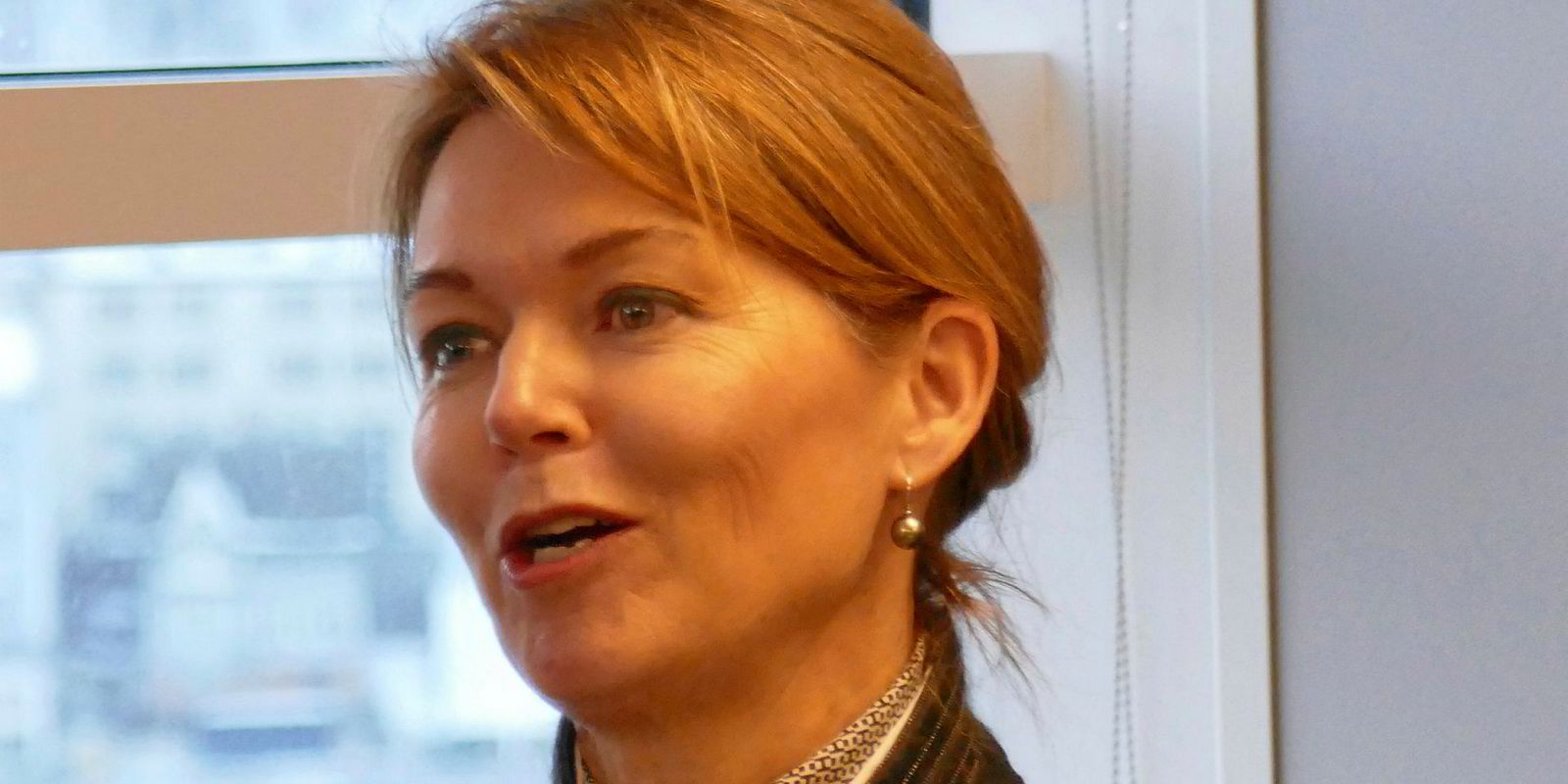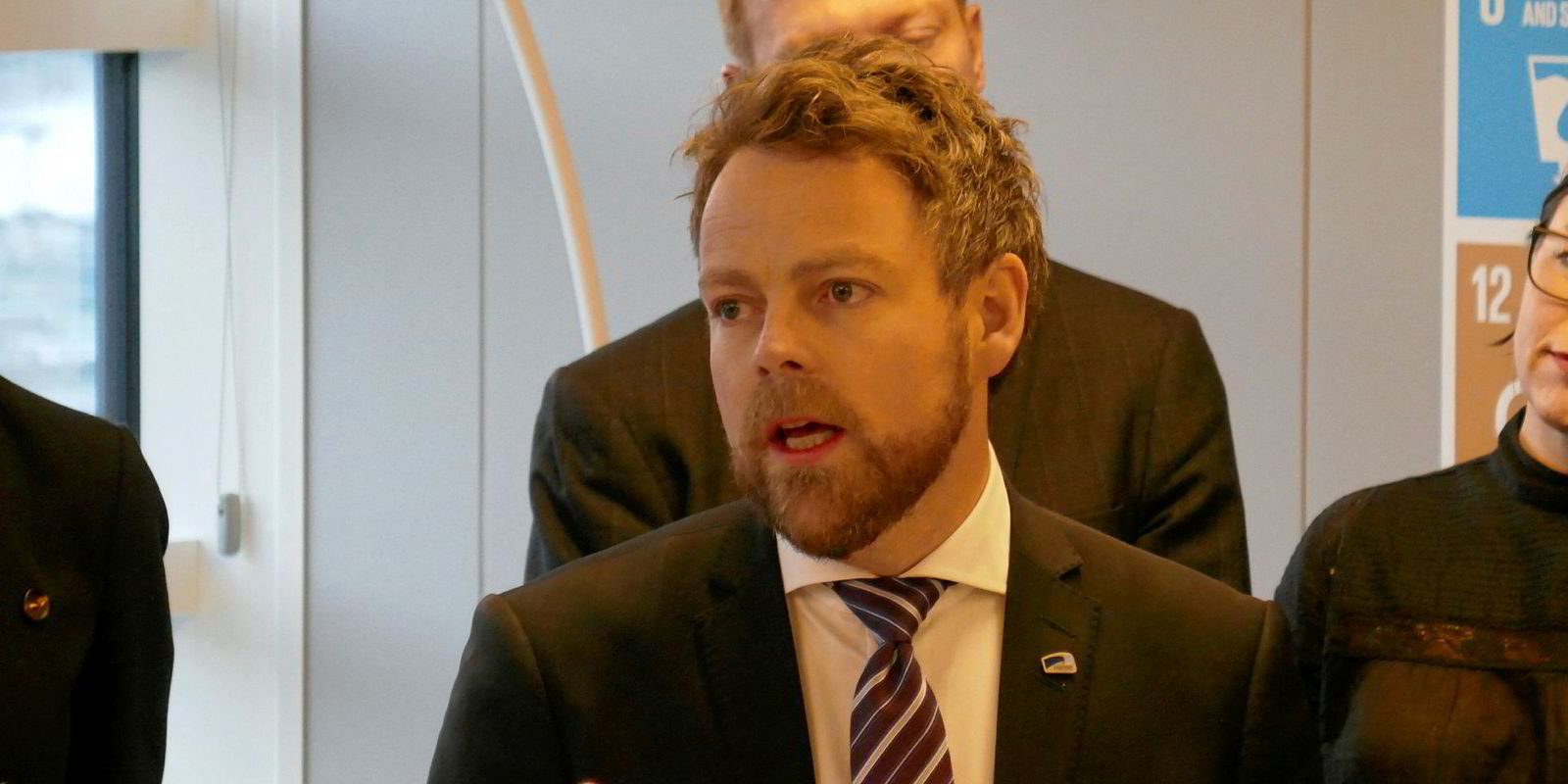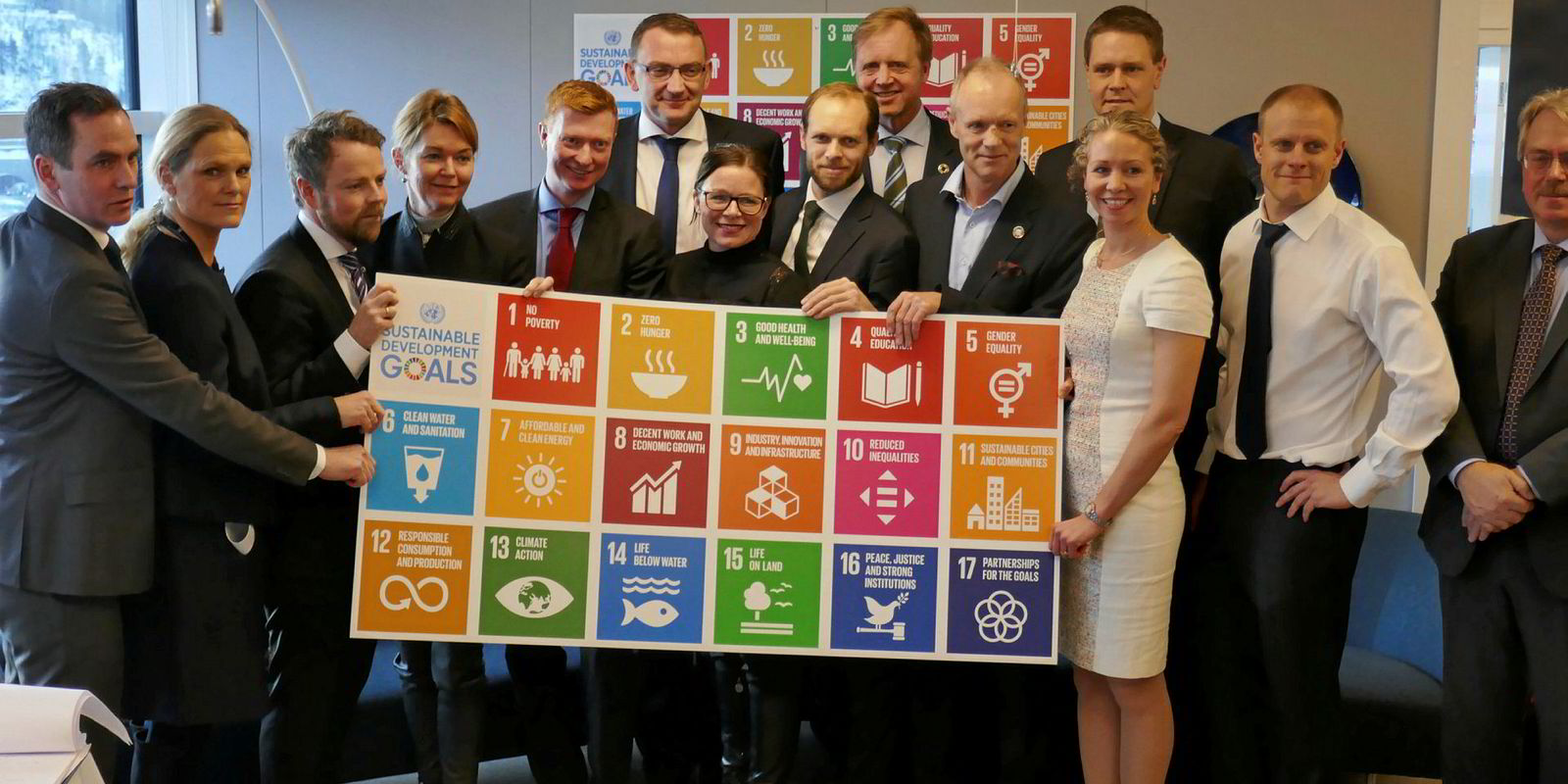The Norwegian government stepped forward in Oslo last Friday as the very first national sponsor of the UN Global Compact’s new Business Action Platform for the Ocean with many of the country's other well-known companies.
The move aims to foster sustainable ocean development by bringing in major players to seek business opportunities.
On hand at the ceremony was Torbjorn Roe Isaksen, Norway's trade and industry minister. He was joined by oil and energy secretary Ingvil Smines Tybring-Gjedde and fisheries secretary Roy Angelvik.
Launched in 2000, the UN Global Compact is the world’s largest corporate sustainability initiative, with about 13,000 corporate participants and stakeholders across 170 countries, according to the UN.
The compact’s main principles — based on concerns for human rights, labour, the environment and anti-corruption — are well defined in 17 sustainable development goals (SDGs).
The Ocean Platform, an initiative within the compact, is concerned with all SDGs but is especially focused on SDG 14: Life below water.
“More than two years ago, these 17 goals were adopted by all the nations in the UN. These goals are all interconnected because the world is interconnected,” said Lise Kingo, executive director of UN Global Compact.
“There is no doubt that the global business community has to play a huge role in making the global goals a reality. We need to see a lot of business leadership across the world in taking action on these goals, as we are seeing from many Norwegian companies.”
Kingo said that a recent UN survey of the nearly 10,000 companies in the compact showed that 75% are working toward the SDGs.
“We have never seen this kind of momentum from the global business sector in driving sustainable business,” she said.
“Ocean risks are one of the areas that have been a key concern but are also an area where risk can be turned into large business opportunities.”
Kingo commended the ministers for what she called “Norway’s bold leadership” as a first-mover in the new Ocean Platform.
“Over the next few months, we will take this initiative, that looks very Norwegian today, into a global initiative because this is a global challenge,” she said.
The compact has existed since 2000 and now includes 13,000 corporate participants and stakeholders. The sustainable development goals (SGDs) were adopted by all nations in the UN. The main principles are based on concerns for human rights, labour, the environment and anti-corruption.
1. No poverty: “End poverty in all its forms everywhere”
2. Zero hunger: “End hunger, achieve food security and improved nutrition and promote sustainable agriculture”
3. Good health and well-being: “Ensure healthy lives and promote well-being for all at all ages”
4. Quality education: “Ensure inclusive and equitable quality education and promote lifelong learning opportunities for all”
5. Gender equality: “Achieve gender equality and empower all women and girls”
6. Clean water and sanitation: “Ensure availability and sustainable management of water and sanitation for all”
7. Affordable and clean energy: “Ensure access to affordable, reliable, sustainable and modern energy for all”
8. Decent work and economic growth: “Promote sustained, inclusive and sustainable economic growth, full and productive employment and decent work for all”
9. Industry, innovation and infrastructure: “Build resilient infrastructure, promote inclusive and sustainable industrialisation and foster innovation”
10. Reduced inequalities: “Reduce inequality within and among countries”
11. Sustainable cities and communities: “Make cities and human settlements inclusive, safe, resilient and sustainable”
12. Responsible consumption and production: “Ensure sustainable consumption and production patterns”
13. Climate action: “Take urgent action to combat climate change and its impacts”
14. Life below water: “Conserve and sustainably use the oceans, seas and marine resources for sustainable development”
15. Life on land: “Protect, restore and promote sustainable use of terrestrial ecosystems, sustainably manage forests, combat desertification, and halt and reverse land degradation and halt biodiversity loss”
16. Peace, justice and strong institutions: “Promote peaceful and inclusive societies for sustainable development, provide access to justice for all and build effective, accountable and inclusive institutions”
17. Partnerships for the goals: “Strengthen the means of implementation and revitalise the global partnership for sustainable development”
Source: UN Global Compact






